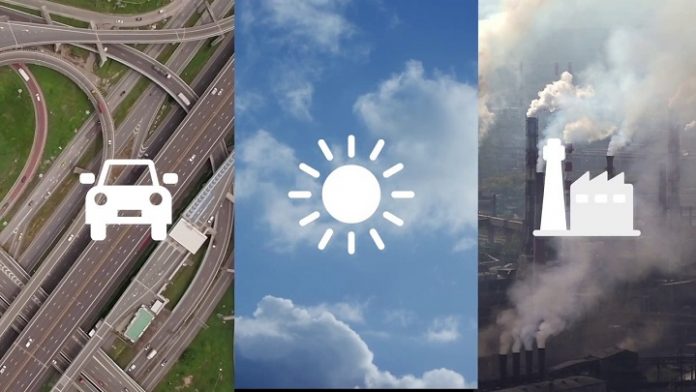Honeywell announced it has established a research partnership with Syracuse University to fund research on emerging indoor air quality technologies. The partnership will include the naming of a Honeywell Indoor Air Quality Laboratory at Syracuse University’s College of Engineering and Computer Science which will be used by researchers to help create healthier and safer building environments.
Air quality is essential to a healthy building. It can impact occupant health and productivity, energy efficiency and real estate value. The quality of air is affected by the presence of pollutants in the indoor environment that may cause harm. When IAQ is poor, occupants can experience a drop in productivity as well as adverse health effects such as asthma and bronchitis. The concentration of some pollutants can be two to five times higher indoors than typical outdoor concentrations.
“Indoor air quality isn’t a buzz word – it’s a critical factor in creating safer, healthier building environments. Our work with Syracuse will measure the performance of a variety of emerging indoor air quality technologies to not only improve occupant productivity and well-being but also help building owners understand the best solutions for different building environments and situations. In the long term, this will help them to better attract occupants, manage energy efficiency and improve their real estate value.” – Manish Sharma, vice president and chief technology and product officer, Honeywell Building Technologies.
“This is a fantastic partnership, and we’re excited to work with Honeywell on indoor air quality research that benefits people all over the world,” said J. Cole Smith, dean of, College of Engineering and Computer Science, Syracuse University. “Professors Jensen Zhang and Bing Dong have been at the forefront of indoor air quality research and the Honeywell Indoor Air Quality Lab at Link Hall will enhance our world-class research abilities.”
“When private industry and academia team up, we can create meaningful change. This collaboration will help identify potential solutions to further improve indoor air quality and create healthier building environments to enhance the occupant experience,” said Suresh Venkatarayalu, chief technology officer, Honeywell.
The Honeywell Indoor Air Quality Lab at Syracuse University will be used to solve several research objectives to determine the impact of air quality on human productivity and creativity. Faculty will use the lab to conduct direct, side-by-side comparisons of next-generation indoor air quality improvement technologies and advanced building systems, in a controlled practical building environment, to provide a comparative analysis of the technologies based on key IAQ parameters measured by sensors and through AI-driven HVAC controls. The research will include characterizing and evaluating IAQ sensors. The research will help to build owners and operators to better determine the right technologies to meet specific building conditions and goals.
Additionally, the research will develop artificial intelligence and machine learning algorithms for dynamic ventilation management. The intent is to identify new ventilation strategies that comply with ASHRAE 62.1 IAQ standards while also achieving goals such as improved occupant productivity, potentially fewer sick days, as well as enhanced energy savings.
“We are excited to collaborate with Honeywell indoor air quality research and development. People typically spend 80-90% of their times indoors, and occupant exposure to the various gas, particulate and biological contaminants found indoors has tremendous impacts on human health, productivity and creativity,” said Jensen Zhang, professor of mechanical and aerospace engineering at Syracuse University.
“The Honeywell and Syracuse collaboration will lead to energy-efficient and cost-effective approaches and technologies to improving indoor environmental quality and reducing the risk of infectious disease transmission, as we look to improve social, economic and environmental conditions.”
Honeywell offers an integrated set of solutions to help building owners improve the health of building environments, operate more cleanly and safely, comply with social distancing policies, and help reassure occupants that it is safer to return to the workplace. The Honeywell Healthy Buildings solutions can support the needs of any building and features specific solutions for premium commercial buildings, airports, hospitality, healthcare, stadiums and educational institutions.
Honeywell’s Healthy Buildings solutions integrate air quality, safety and security technologies along with advanced analytics to help building owners minimize potential risks of contamination and improve business continuity by monitoring both the building environment and building occupants’ behaviours.








